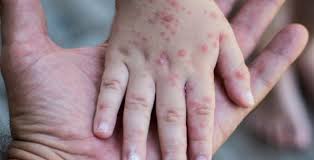Myth: Skin warts are caused by poor hygiene.
Fact: Skin warts are caused by infection with HPV. Good hygiene can help prevent the spread of skin warts, but it is not the cause.
Myth: Skin warts are contagious and can be easily spread to others.
Fact: Skin warts are contagious and can be spread through direct contact or indirectly through shared objects, such as towels or shoes. However, not everyone who comes into contact with HPV will develop skin warts, as some people have a stronger immune system that can fight off the virus.
Myth: Skin warts can turn into cancer.
Fact: Skin warts are benign, non-cancerous growths. However, certain types of HPV are associated with an increased risk of certain types of cancer, such as cervical cancer.
Myth: Skin warts can be cured easily with home remedies.
Fact: Some home remedies, such as vinegar or duct tape, may help to remove skin warts in some cases. However, these remedies are ineffective and can take a long time to work. It is often best to see a healthcare provider for treatment.































